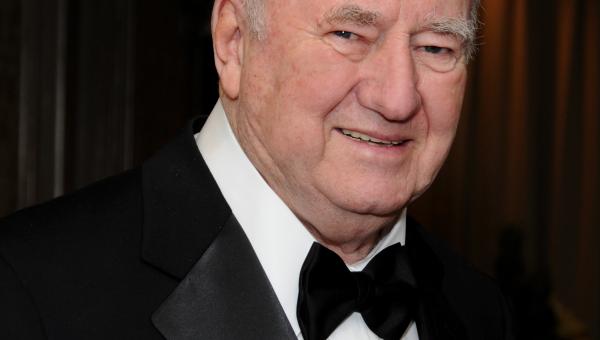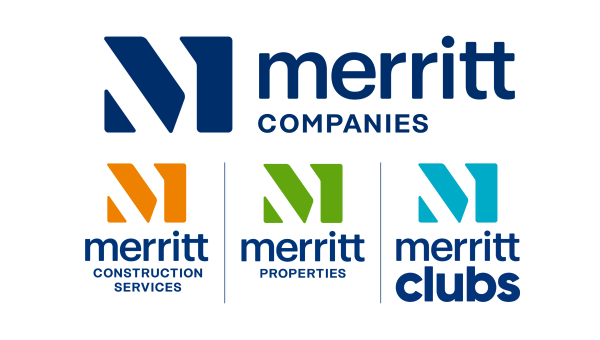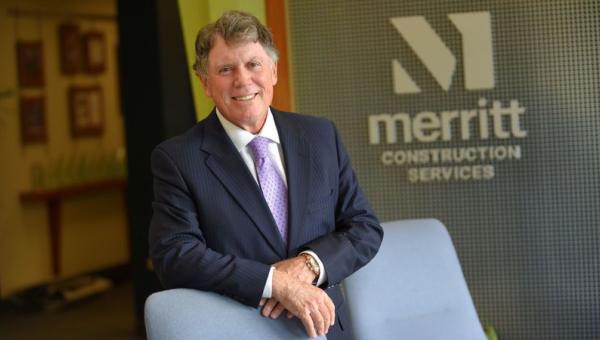Company
Timeline
-
1930
Leroy Merritt Born in Depression-era Dundalk, Maryland
![Leroy Merritt]()
Born in 1930, Leroy is raised in a blue collar area dominated by the local steel mill and shipyard. As a young boy working in his parents’ restaurant during the Depression, Leroy learns early the importance of pitching in, working hard and taking care of your customers. With a strong work ethic and aspirations beyond a job in the steel mill, Leroy earns a Senatorial Scholarship to attend Western Maryland College where his entrepreneurial spirit leads him to his first business venture—selling hotdogs and sandwiches in the dorms at night after the cafeteria closed. During summers home from college, he is given his start in construction, working for his uncles who had established a masonry business after returning from World War II.
-
1953
Leroy Merritt Begins Building Houses
![Leroy Merritt Begins Building Houses]()
After graduating from college and serving the two-year teaching commitment required by his scholarship, Leroy begins building houses, often on spec. He builds more than 60 homes in 10 years.
-
1967
Leroy Merritt Partners with Ed St. John
![first warehouse]()
In search of an honest builder with whom to partner on apartment buildings, Ed St. John is pointed to Leroy. The two agree to work together. However, instead of apartment buildings, they decide to take advantage of the burgeoning demand for rental warehouse space, a revolutionary concept at the time. They complete their first building—16,000 square feet at 2900 Stafford Street—in southwest Baltimore City, which begins a four-year collaboration between the two men.
-
1971
Leroy and Ed Divide the Company
![first Merritt office]()
After four years, Leroy and Ed recognize that they each have their own unique philosophy on business and agree to split the company. Rather than employing a cast of lawyers and accountants, Ed divides the properties into two groups, and Leroy chooses. They move forward separately, each building successful commercial real estate companies and remaining life-long, friendly competitors. After the split, Leroy moves his company into its first offices on Brighton Avenue.
-
1972
Scott Dorsey joins the company
![Scott Dorsey]()
Scott Dorsey, Leroy’s cousin, joins Leroy’s new company after having spent 5 summers with his father’s concrete company pouring floors for Ed and Leroy’s warehouses. For years, Leroy and Scott share a “desk” made from a door set atop filing cabinets. This allows Scott to learn first-hand Leroy’s approach to business and gift for building long-lasting relationships with customers and vendors alike.
-
1972
First mansard roof installed at Aylesbury Business Center
![Aylesbury Business Center]()
Wishing to make his simple brick warehouses look a little nicer for his customers, Leroy decides to add a mansard roof to two buildings at Aylesbury Business Center. He is surprised to receive a call from the county, expressing concern that the roof may not meet code requirements. While meeting with county officials to review the mansard, a senior official suggests to Leroy that the issue can easily be resolved with a $5,000 contribution to the county executive’s re-election campaign. Leroy refuses and spends over $13,000 fighting the county. He prevails and to this day, the mansard roof is a signature design element on Merritt buildings.The mansard also becomes a symbol to Merritt employees, reminding them of Leroy’s mantra to do what’s right, not what is expedient.
-
1977
Merritt’s mansard logo is born
![Merritt logo]()
As a recognizable feature on Merritt buildings and a symbol of Leroy’s basic business principles, the mansard roof is incorporated into the company’s logo.
-
1977
Leroy opens his first athletic facility, the Towson Court Club
![Towson Court Club]()
At the forefront of the racquetball craze, Merritt is approached to lease space for courts in Towson, MD. Unfortunately, once the space is completed, Leroy learns that the investors have backed out of the deal. Recognizing a new opportunity, Leroy takes over the business and opens the first Merritt racquetball facility, the Towson Court Club.
-
1978
Merritt Enters the Computer Age
![computers]()
Always interested in new technologies and the efficiencies they bring, Merritt adds the IBM System 32 to the office.
-
1979
Annapolis Club Opens
![Annapolis Club]()
The Towson Court Club is a success. As the racquetball craze continues, Merritt decides to open another court club. The Annapolis Club opens. Merritt decides to capitalize on the social aspect of racquetball and adds a full-service bar to the club for members. It’s a hit.
-
1980
Merritt moves corporate offices to Security Boulevard and opens Security Club
![Security Club]()
Merritt opens its third court club. The Security Club is the site of many national racquetball championship matches. Some of these matches are televised.
-
1986
Merritt builds its first multi-story office building in Timonium
![Timonium]()
Wanting to bring a first-class office building to customers in the suburbs, Merritt builds Timonium I & II with high-end finishes and building amenities expected in a downtown office.
-
1986
Clubs evolve from racquetball to full-service clubs
![athletic club]()
As the racquetball craze begins to wane, the clubs take advantage of new fitness trends and shift to full-service Athletic Clubs.
-
1987
Merritt’s first historic renovation at 729 E. Pratt Street
![729 East Pratt]()
Dating back to the late 1800s, this iconic waterfront building originally served as home to the Scarlett Seed Company. Merritt transformed the building, combining unique office and retail spaces that integrate contemporary design with the historical architecture and industrial character of the original building.
-
1989
Robb Merritt joins the company
After graduating college, Robb Merritt joins his father’s company, learning the business from the ground up as Leroy had. He begins his career on the field construction crew.
-
1989
Downtown Athletic Club Opens
![Downtown Athletic Club]()
Merritt takes over the Downtown Athletic Club. This historic building was a former train repair station in the early 1900s. Members can still see the arches of the building where trains were brought in for repair. The building has the only wooden roof truss system in the state.
-
1990
Merritt completes its first retail project, Columbia Marketplace
![Columbia Marketplace]()
-
1990
Merritt begins its first office park, Columbia Corporate Park
![Columbia Corporate Park]()
Situated in the heart of the burgeoning Columbia business district, Merritt begins construction on an 18-acre park that will ultimately include five class A office buildings and retail.
-
1992
Recession hits the commercial real estate industry
![deli tray]()
With the collapse of the real estate market in the early 90s, Merritt’s 25th anniversary coincides with lean times. “Survive ‘til ’95” becomes the rallying cry. Even the company’s Christmas party consists only of a deli tray and beer, served in a vacant warehouse. While certainly not extravagant, the party is a celebration of the comraderie forged from facing adversity, and it becomes one of Robb Merritt’s favorite memories.
-
1997
Merritt partners with Rothschild Realty
With a rebounding economy, Scott Dorsey and Robb Merritt travel to New York to seek equity that will allow the company to take advantage of greater development opportunities. What begins as an 8-year investment from Rothschild Realty, grows into a long-term partnership that continues today.
-
1998
Merritt holds its first corporate retreat
![retreat notes]()
Working with a facilitator, the Merritt team codifies its core values and tagline, “Creating Homes for Businesses.”
-
1999
Merritt opens Virginia Office
Seeing another opportunity in the growing market of Loudoun County, Merritt begins expanding beyond Maryland into Northern Virginia. Opening the Virginia office at Ashbrook.
-
2000
A new role for Leroy
![Leroy, Scott and Robb in office]()
Leroy steps away from day-to-day operations, dubbing himself the CFO, Chief Fun Officer. Scott and Robb take over leadership.
-
2000
Business is booming
Merritt kicks off the new millenium with a building boom, completing 16 new properties with more than 1 million square feet in the year 2000 alone.
-
2000
Eldersburg and Fort Avenue clubs open
![Eldersburg Club]()
Merritt realizes the increased competition of health clubs in Maryland and decides to start branching off into the family marketing. They start construction on their first family-oriented Club in Eldersburg. The 75,000 square foot facility features a day care, children’s dance studio and two indoor pools. The revitalization of some areas in Baltimore City also makes the Federal Hill area very desirable. Merritt opens another location on Fort Avenue in Locust Point that same year.
-
2001
Owings Mills Club opens
![Owings Mills Club]()
-
2002
Leroy receives the NAIOP Lifetime Achievement Award
![Leroy Merritt in tux]()
-
2003
A hometown company. A hometown team.
![Ravens]()
Merritt becomes an official sponsor of the Baltimore Ravens.
-
2003
Canton and Cranbrook clubs open
![Canton club]()
-
2003
Merritt’s Fort Avenue club moves to The Foundry
![The Foundry]()
Merritt moves the Fort Ave location from a shopping center to The Foundry, a building owned by Merritt Properties. The club membership has grown so much more space is needed.
-
2010
Leroy Merritt passes away
![Hero Leroy]()
The loss of Leroy’s legendary warmth and humor is tremendous, but his ethics and approach to business continue to steer the company forward.
-
2013
Merritt wins Business Philanthropy Award for charitable and volunteer work
-
2014
Scott receives the NAIOP Lifetime Achievement Award
![Scott Dorsey receives NAIOP lifetime achievement award]()
-
2014
White Marsh Club opens
![White Marsh Club]()
The White Marsh area is shown to be a popular family market with little competition for Clubs. Merritt Properties buys a parcel of land and Merritt Construction builds the White Marsh location. The 55,000 square foot facility features an outdoor pool, large kids center and indoor cardio movie theater.
-
2014
Merritt completes 7th LEED building
Merritt notches its seventh LEED-certified building, leading the way in Maryland.
-
2015
Canton Club expands
Major expansion of Canton Club planned alongside development in region.
-
2017
50 years of service
![Leroy anniversary logo]()
Merritt marks 50 years of service with a year of surprises and celebrations honoring our employees, partners and customers.
-
2017
A new brand for Merritt's family of companies
![Merritt company logos]()
-
2018
Scott Dorsey Honored by Baltimore Business Journal and Daily Record
![Merritt CEO Scott Dorsey]()
It's a banner year for Merritt's CEO Scott Dorsey, who is named among the Baltimore Business Journal's Power 10 and The Daily Record's Influential Marylanders.
-
2018
Merritt Properties secures $400 million capital investment from Almanac Realty Investors
![Almanac Realty Invstors logo]()
Merritt Properties and Almanac Realty Investors (formerly Rothschild Realty) renew their long-standing relationship, which originated as an eight-year partnership in 1997.
-
2018
Merritt Stretches Virginia Footprint Along I-95
![Merritt construction team watching wall tilt-up]()
Merritt expands into Stafford County, VA, acquiring 15 acres along I-95 for Merritt Business Park at Quantico Corporate Center. When complete, the project will include two single-story light industrial buildings totaling 162,200 square feet.
-
2020
Merritt Expands to North Carolina
![TW Crossing aerial rendering]()
Merritt Properties expands into North Carolina with the acquisition of 51 acres in Durham for the development of a new light industrial business park, Merritt TW Crossing. This announcement marks the beginning of our regional growth, as we continue to acquire land for additional light industrial parks in Wake Forest, Knightdale, Chapel Hill, Cary, Raleigh, and Garner.
-
2021
New Opportunities to Build in Maryland
![White Marsh Interchange Park aerial rendering]()
With limited developable land available in Maryland, Merritt is able to acquire two parcels for major light industrial redevelopment projects. A former Quest Diagnostics headquarters office in Arbutus will become two single-story light industrial buildings totaling 111,300 SF while a former General Motors plant in White Marsh will be transformed into a nine-building light industrial park totaling 750,000 SF.
-
2021
Merritt Acquires 28 Acres in Stafford, VA
![Austin Ridge aerial rendering]()
Merritt continues to invest in Stafford County, VA, acquiring 28 acres for Austin Ridge Business Park, to consist of five single-story light industrial buildings along I-95.
-
2021
Merritt TW Crossing Completion
![Merritt TW Crossing Ribbon Cutting]()
Merritt celebrates the grand opening of Merritt TW Crossing, its first development in North Carolina. Over the course of 18 months, Merritt constructed this 284,240-square-foot light industrial business park, which consists of four buildings and leased up quickly. This project also marks the establishment of Merritt's first regional office. Merritt TW Crossing garnered significant recognition, including being named the “Top Flex/Warehouse Development” by the Triangle Business Journal.
-
2021
Merritt Expands to Florida
![Imeson Landing Business Park rendering]()
As Merritt Properties continues to seek new development markets, the company lands in Jacksonville, Florida, with the purchase of a 25-acre tract for the development of Imeson Landing Business Park and the acquisition of Magnolia Park, an existing three-building light industrial portfolio. At the time, Robb Merritt shared, “These acquisitions allow us to expand into a strong market while responding to demand for single-story, light industrial product.”
-
2022
Merritt Enters Richmond Market
![Crescent Business Center expansion aerial rendering]()
Merritt secures its first property in the Richmond market with the purchase of Crescent Business Center, consisting of five existing shallow-bay light industrial buildings. The parcel includes additional 19 acres for new development where Merritt intends to construct four additional Class A light industrial buildings.
-
2023
Imeson Landing Business Park Phase I Delivers
![Imeson Landing Business Park ribbon cutting]()
Merritt celebrates the completion of Phase 1 construction at Imeson Landing Business Park in Jacksonville, opening its first three buildings at the park. The following month, we announced the acquisition of 16 more acres for the future development of 114,500 square feet of space. This expansion will bring the total development to over 380,000 square feet across eight buildings.
Our Services
As a fully integrated developer, we’re proud to offer an expansive roster of in-house capabilities. Most importantly, you’ll find we have the personality of a small company. It’s the ideal combination: outstanding expertise and a unique ability to see things from a customer’s perspective.
What's it like to work with Merritt?
-
Michele's Granola
Michele Tsucalas, Founder & Owner
"Merritt didn't just want to build us a space and lease us a space, they wanted our business to succeed. From the very beginning of our relationship, Merritt said to me, 'When you're ready to grow, we'll help you grow.'"
Remote video URL -
Whiteford, Taylor & Preston
Joe Mezzanotte, Partner
"Merritt makes promises, they deliver on those promises, they deliver on time, and they deliver on budget."
Remote video URL -
Firaxis Games
Steve Martin, President
"Merritt employees truly love their jobs and consistently deliver solutions in a fast, creative and cost-effective manner."
Remote video URL
Leadership
Greater Prosperity For Our Customers;
Greater Opportunity For Our Employees
True to Leroy Merritt’s vision, we focus equally on the efficient operation of our businesses and on our impact on the community—our commitment to doing what’s right, every day, for every customer.
![Scott Dorsey]()
Scott Dorsey
Chairman & CEO
Focusing on strategic planning and long-term goals for Merritt, Scott oversees relations with financial institutions, government agencies, economic development organizations and industry groups. He joined the company in 1972. Scott is Chairman of the Board of the Maryland Economic Development Corporation and the Maryland Free Enterprise Foundation (formerly Maryland Business for Responsive Government) and sits on the Board and Executive Committee of the Greater Baltimore Committee. He serves on the Board of Directors for the Baltimore County Economic Development Commission, and also the Baltimore County Economic Development Advisory Board, the Caves Valley Golf Club Foundation, Junior Achievement of Central Maryland, and Baltimore Life Coaches, a program mentoring young men and women in Baltimore City. His involvement also includes the M&T Bank Greater Baltimore/Washington Directors’ Advisory Council. In addition, he is a member of the board of Stevenson University, a former member of the board of McDonogh School, and served on the Maryland Commission on Innovation & Excellence in Education (The Kirwan Commission) since its inception in September 2016. He is also a member of the National Association of Industrial and Office Properties (NAIOP), the Institute of Real Estate Management (IREM) and the Urban Land Institute (ULI). He holds a Bachelor of Arts from Cornell University and an MBA from Loyola University in Maryland.
![Robb Merritt]()
Robb Merritt
President
Robb oversees daily operations and management of the company, having learned the development business from the ground up. He is former president of the Baltimore Chapter of the National Association of Industrial and Office Properties (NAIOP) and is currently a member of the Legislative Committee. In addition, Robb sits on TCP Venture Capital's Propel II and Propel III Funds Investment Committees and serves as a board member for the Living Classrooms Foundation and Signal 13 Foundation. A graduate of the University of Colorado, Robb received an MBA from Loyola University.
Latest News
Merritt Properties Veteran Wins Two 2024 Women of Influence Awards
Merritt Properties’ Missy Teague was recognized as Globe St.’s Woman of the Year for marketing and communications and named to their Women of Influence Class of 2024 at the 5th Annual Globe St. Women of Influence Conference and Awards ceremony held on July 23, 2024. The two-day event honors women in commercial real estate and offers seminars on…
Three Companies Sign Leases at White Marsh Interchange Park as Phase 1 Delivers
Merritt Properties has signed its first three leases totaling 80,960 square feet at its White Marsh Interchange Park as construction on Phase 1 delivers. The first phase of construction is comprised of 235,900 square feet across three light industrial buildings. The new tenants include Restaurant Depot, Dill Dinkers, and Sensi Auto.
Merritt Properties Receives Two Awards of Excellence from NAIOP Chapters in Maryland and Florida
Merritt Properties has been awarded two Awards of Excellence from the Maryland and Northeast Florida chapters of the NAIOP Commercial Real Estate Development Association, the leading organization for developers in the commercial real estate development industry.
Merritt Properties Completes Phase Two Construction at Imeson Landing Business Park
Merritt Adds Two New Light Industrial Buildings and Welcomes New Tenants Merritt Properties has completed phase two of construction at Imeson Landing Business Park, adding 128,400 square feet of space across two new light industrial buildings. Phase I consisted of three buildings totaling 137,800 square feet that are fully occupied.
Merritt Companies Receives Loudoun Chamber’s Community Leadership Award
Last night, Merritt Companies was awarded the 2024 Community Leadership Award at the Loudoun County Chamber’s Annual Meeting & Community Leadership Award Ceremony.
Awards
Charitable Programs
Leroy Merritt’s greatest legacy was his spirit of generosity, and we are honored to carry on this tradition.
Our charitable giving focuses on providing for the immediate needs–food, clothing and shelter–of disadvantaged women and children in Maryland, North Carolina, Florida, and Virginia.
We are always grateful to learn about new organizations serving these populations, and we receive hundreds of requests each year. Therefore, we ask that you ensure that your request falls within our mission statement prior to submitting. To apply for a grant or fundraiser sponsorship, your organization must be a 501(c)3 non-profit and should submit a request detailing the program, budget and specific measurements or success stories. Please also provide your most recent IRS form 990.
We accept requests on a rolling basis throughout the year, and they are reviewed on a quarterly basis. Please email your completed request to [email protected]. Thank you for your service to our community.
Merritt Companies
One Family. Three Companies. Five Decades of Service.
Submit a Grant Request
We are always grateful to learn about organizations serving the immediate needs of disadvantaged women and children in the area. Unfortunately, we receive more than 800 grant requests each year and are simply unable to fulfill them all. Therefore, we ask that you ensure that your request falls within our mission statement prior to submitting.
We accept requests on a rolling basis throughout the year, and they are reviewed on a quarterly basis. Please email your completed request to [email protected]. Thank you for your service to our community.
























































